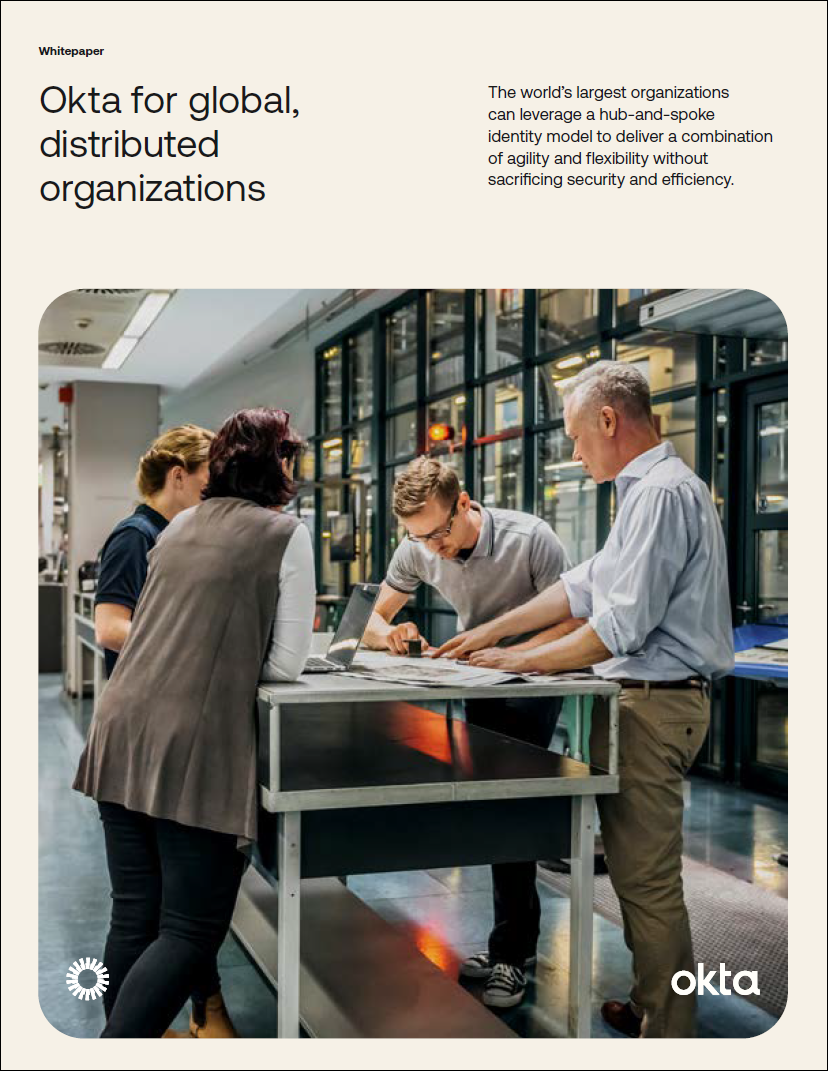
Okta for global, distributed organizations

For large, complex organizations, centralizing aspects of identity can be extremely challenging. Business units, subsidiaries, and regional entities often operate independently, making their own decisions and managing their own technology and user bases. Multinational organizations must adhere to regulatory requirements related to data residency, and the ambitious goal of a centralized identity can seem impossible given the need to store personally identifiable information (PII) within each respective country. Finally, organizations looking to augment their capabilities for either the short term (i.e. seasonally) or for the long term (including M&A) have challenges centralizing identities originating from outside of their organization.
A ‘hub-and-spoke’ identity model can serve as the foundation for unified services and centralized visibility across an entire organization, while allowing for specific application and user management flexibility across distributed information technology (IT) organizations. There are a number of real world use cases for how this hub-andspoke model can be leveraged to improve agility and flexibility without sacrificing security and efficiency, with deployment models for:
- Large organizations with multiple business units
- Multinational organizations with data residency
- Third-party (including contractor) outsourcing
- Integration for mergers and acquisitions

